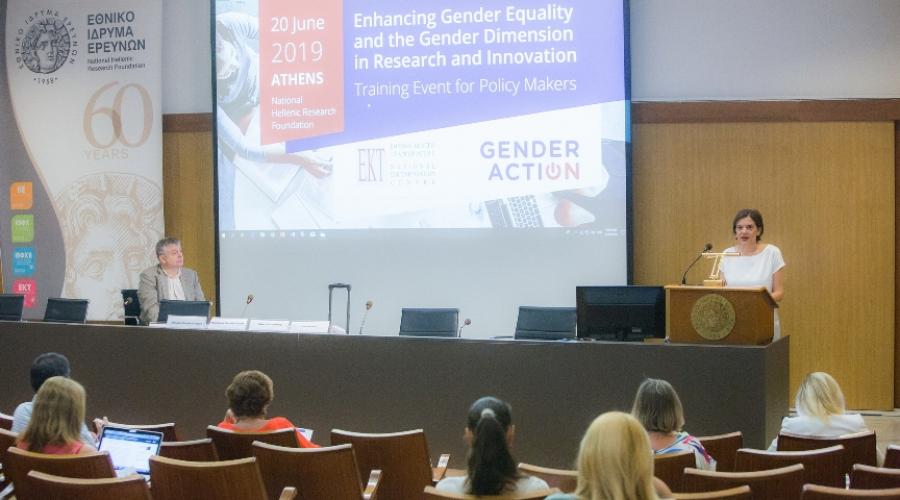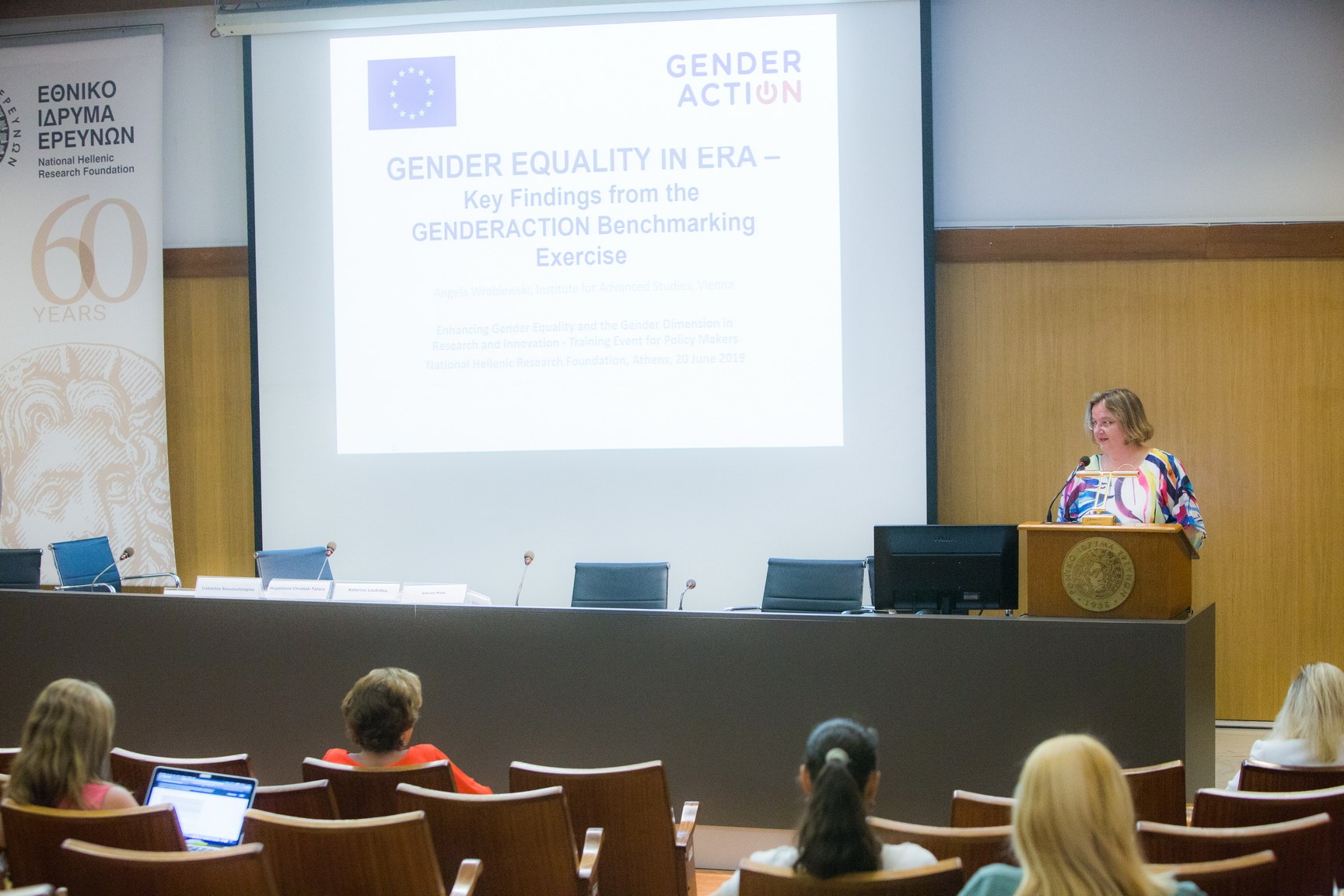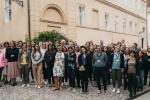
The event 'Enhancing Gender Equality and the Gender Dimension in Research and Innovation’ held on Thursday 20 June and hosted by the National Documentation Centre (EKT), partner in the EU-funded project GENDERACTION gave the opportunity to discuss ways of strengthening gender equality and the gender dimension in research and innovation.
The participation of representatives of research institutions and funders, public bodies dealing with gender issues, as well as researchers from different disciplines, highlighted the interest of both the Greek and the European community and confirmed the importance of relevant events focusing on the exchange of experiences and good practices between Member States.
The event kicked-off with Professor Aristotle Tympas, President of the EKT Scientific Council, who welcomed participants and highlighted the importance of further strengthening actions on gender equality, while Marina Angelaki, also from EKT and co-ordinator of the event, presented GENDERACTION placing emphasis on the mutual learning activities and the series of Policy Briefs prepared by the project to support policy makers.
The Policy Briefs series covers issues such as gender equality in the European Research Area (ERA), gender and Open Science and the methodological framework for assessing gender in international co-operation in STI.
Angela Wrobleski (Institute of Advanced Studies, Αυστρία) presented the results of the benchmarking exercise regarding Member States' performance in implementing the ERA priority for gender equality and the integration of gender issues (Priority 4), held in the context of GENDERACTION. Analysis of the National Action Plans showed the absence, to a significant extent, of a definition on gender equality, and of setting specific objectives beyond a general commitment or reference to a general objective on gender equality.
Comparing the approach of the old Member States (EU-15) with the new Member States (EU-13), the analysis found that the former include specific targets more often than the latter. The analysis showed Greece to be among the Member States with an integrated approach to Priority 4. Overall, the analysis highlighted the importance of developing indicators for assessing the implementation of National Action Plans and exchange of best practices at both national and European levels, as well as between countries with different degrees of maturity in achieving the gender equality target.

Recognising the importance of good practice exchange, the first session focused on highlighting relevant examples from different stakeholders and different states.
Anna Puy (Spanish Ministry of Research and Innovation) presented the briefing note for evaluating the integration of sex/gender analysis in research in proposals submitted for funding. In doing so, Anna Puy presented the pioneering legal basis developed in Spain for gender mainstreaming in R&I at national level, followed by a detailed presentation of the actions that have been set up by the Spanish Funding Agency through its funding schemes for RDI projects.
Dia Anagnostou (Senior Research Fellow at the Hellenic Foundation of European and Foreign Policy-ELIAMEP and Panteion University) presented the process of adopting a Gender Equality Plan (GEP). Drawing on the ELIAMEP experience, she stressed the importance of the GEP as a tool for strengthening gender equality within decision-making bodies in terms of the recruitment process, management of human resources and implementing research options. Particular attention was given to the active participation in the process of the personnel of organisations, as the shaping of any Gender Equality Plan must take into account the environment in which it will be implemented.
Nancy Papalexandris (Athens University of Economics and Business) shared data on the position of women in Greek universities, which, despite the existence of a ‘glass ceiling’, is showing signs of progress. The factors affecting the participation of women are related, among others, to the over-representation of women in the humanities and social sciences and the absence of women role-models in science, the absence of measures to reconcile work and family life and the existence of gender stereotypes. The Equality Commission set up by the Aegean University, was presented as an example of good practice in Greek academia.
Sonay Gonenli ( Scientific and Technological Research Council, Turkey) presented TUBITAK’s, Turkey’s biggest research funder, policy with respect to gender equality.
The second part of the event, the Roundtable, allowed a deeper look into specific aspects of gender equality. Katrien Maes (League of European Research Universities, LERU), presented LERU’s working group on Equality, Diversity and Inclusion activities, noting the importance of intersectionality that is often overlooked in analyses examining the gender dimension.
Magdalena Chrobak-Tatara (Standing Working Group on Gender in Research and Innovation Ministry of Research and Higher Education, Poland) emphasised the importance of good practice exchange and synergies between SWG GRI and GENDERACTION and the synergies created between the two, while Katerina Loukidou (General Secretariat for Gender Equality) pointed out the need to avoid gender stereotypes during the design of policies.
The active participation of the audience throughout the event gave the opportunity to discuss in more details the issues raised, while giving participants the opportunity to also share their experiences from their institutions. At the same time, the vivid discussions that took place confirmed the significant contribution of projects like GENDERACTION in advancing gender equality.













